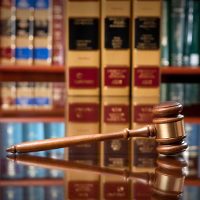The following post comes from Liz Velander, a recent graduate of Scalia Law and a Research Assistant at CPIP.
 By Liz Velander
By Liz Velander
A recent Ninth Circuit ruling limits the amount a copyright owner can be awarded in statutory damages. In Desire v. Read more


 The Second Circuit’s recent opinion in
The Second Circuit’s recent opinion in